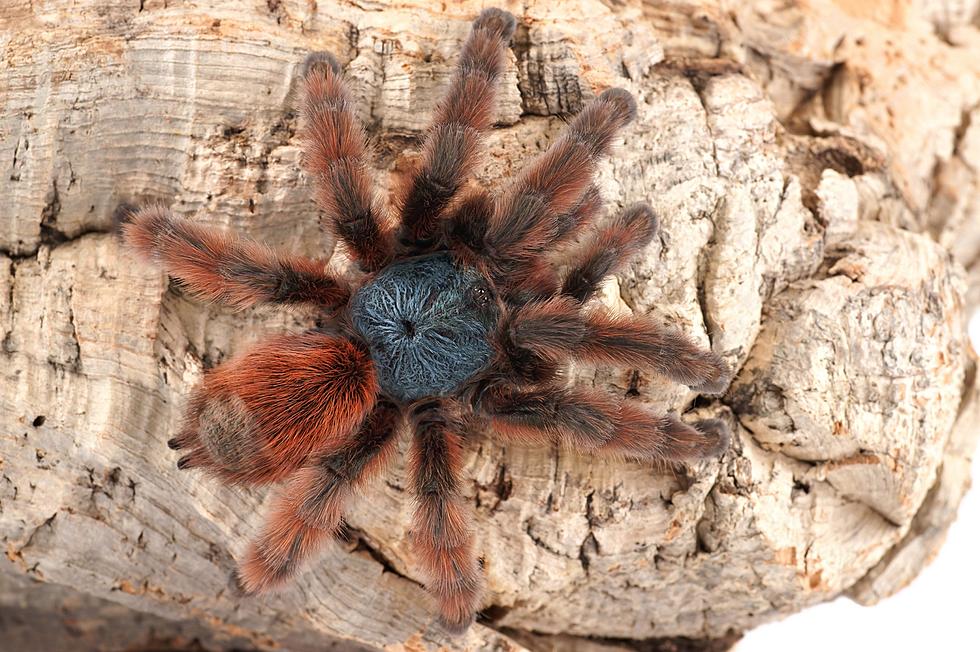
Iowa is Now Home to Nearly 170 Tarantulas
You just never know when you're going to need a new home, even if you're a tarantula. Or, in this case, a cluster of them. A really large cluster.
The state of Iowa is now harboring almost 170 tarantulas. All the same species, they go by three different names: Caribena versicolor, Antilles pinktoe, or Martinique pinktoe. That's a stock photo of one at the top of this story.
According to The Tarantula Collective, the Caribena versicolor "is a gorgeous species that starts off as a bright blue spiderling until it molts into its Adult coloration of greens and reds." That description is where the problem lies.
They're apparently so beautiful that Caribena versicolor tarantulas are trafficked illegally. The Ames Tribune reports that the ones that ended up in Iowa, were actually seized at the Port of Los Angeles. The U.S. Fish and Wildlife Service then decides what to do with them.
Of the Caribena versicolors confiscated at the port, 159 are being housed at Iowa State University's Insect Zoo, while 10 others ended up at Reiman Gardens. They are all approximately four weeks old and will be kept in Ames for at least nine months.
According to ISU Insect Zoo education program coordinator Ginny Mitchell, the Insect Zoo has never had animals that were seized before. She told the Ames Tribune she hopes to keep approximately half of the Caribena versicolors at Iowa State, with the remainder being sent to zoos.
These aren't the first tarantulas in Iowa. The Insect Zoo has many others. Though you can't visit them at Iowa State, the zoo travels around Iowa visiting schools and other events. I know just a few years ago, it was at the Linn County Fair.
If you'd like the Iowa State University Insect Zoor to come to an event, you can schedule it here.



